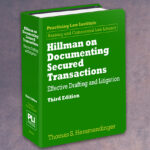The Republican Predicament Probably Worsens In May
After a criminal indictment, you can reasonably say that Trump is innocent until proven guilty. After an actual finding of liability in a civil case, you can no longer say that.

(Photo by Win McNamee/Getty Images)
Trump was indicted in New York, and Republican officeholders rallied to his defense. It’s all a witch hunt, Republicans said, and the prosecution is political. That’s the smart thing for Republicans to say; there’s no political advantage to alienating the base.
But in a couple of weeks, the E. Jean Carroll civil case, alleging defamation and sexual battery, will begin, followed by a verdict a little while later. The judge has held that the “Access Hollywood” tape, about grabbing women by the genitals, will be admissible at trial, and the judge will allow testimony from a couple of other women who say that Trump behaved improperly toward them. As I’ve written before, that’s a tough case for Trump: It’s much harder to defend a lawsuit against multiple accusers than against one.

Documenting Secured Transactions: A New Guide For Practitioners
In the typical case, the defendant would take the witness stand and deny that the assault occurred, creating a “he-said, she-said” (or, at the Carroll trial, “he-said, they-said”) situation. But that’s also problematic for Trump and his lawyers here. Trump has at times admitted that the “Access Hollywood” tape accurately recorded his voice; at other times, Trump has insisted that the tape was a fraud. No matter what he says on the witness stand, he’ll be impeached with his previous statements.
On cross-examination, Carroll’s lawyers will of course do everything they can to cause Trump to testify on issues that could add to his criminal peril in other potential cases. (You may say that it’s nasty for Carroll’s lawyers to do that, but it’s an obvious, and legitimate, trial strategy.) Trump has the right to invoke the Fifth Amendment and refuse to incriminate himself on those issues, but, unlike in a criminal case, the plaintiff in a civil case can ask the jury to draw the obvious inference from a defendant invoking the Fifth Amendment — his response would hurt his case.
Given these problems, Trump’s lawyers will tell Trump not to take the stand in the E. Jean Carroll case. (I assume that Carroll will not herself call Trump to testify as an adverse witness. But that’s possible, and I’m not sitting at the plaintiff’s table in the Carroll case.) If Trump does not testify, Carroll’s lawyers will argue that Trump’s refusal to take the witness stand is evidence of guilt.
As I said, it’s a tough case for Trump.
Sponsored

Documenting Secured Transactions: A New Guide For Practitioners

LawPay Pro Offers Upgraded Time And Billing Essentials

The Digital Transformation Imperative


LawPay Pro Offers Upgraded Time And Billing Essentials
Assume for a minute that Trump is found liable for defamation and sexual battery (which Carroll says was rape). If you’re a Republican officeholder, what do you say then? Do you stand by Trump? That’s the politic thing to do, but on what basis — the jury was biased? The jury consisted only of insane Democrats and RINO Republicans? The jury system itself is unfair?
After a criminal indictment, you can reasonably say that Trump is innocent until proven guilty. After an actual finding of liability in a civil case, you can no longer say that.
If a Republican officeholder agrees with the jury that Trump committed rape, that will outrage MAGA Republicans.
If a Republican officeholder says that Trump did not commit rape despite the jury’s finding, I assume that will destroy the Republican’s credibility with suburban women, an important demographic group in most electoral polls.
That’s a tough decision for Republican politicians.
Sponsored

Survey Results: A Perspective On The Private Markets

Clio Users: New Ways To Add Value To Your Practice!
If, as seems likely, Trump is then indicted in the Mar-a-Lago classified documents case and the Georgia electoral misconduct case, the situation gets even harder for Republicans.
We don’t know what happened in the dressing room of Bergdorf Goodman 23 years ago, but we heard the tape of Trump telling Brad Raffensperger to find 11,000 votes in Georgia. We’ve seen Trump on television saying that he had a right to keep Presidential documents or that documents were automatically declassified when he chose to take them home — neither of which is an accurate statement.
The indictment in New York gave Republicans an easy choice to make.
The E. Jean Carroll case, and events beyond that, will make the choice much harder.
Mark Herrmann spent 17 years as a partner at a leading international law firm and is now deputy general counsel at a large international company. He is the author of The Curmudgeon’s Guide to Practicing Law and Drug and Device Product Liability Litigation Strategy (affiliate links). You can reach him by email at inhouse@abovethelaw.com.







